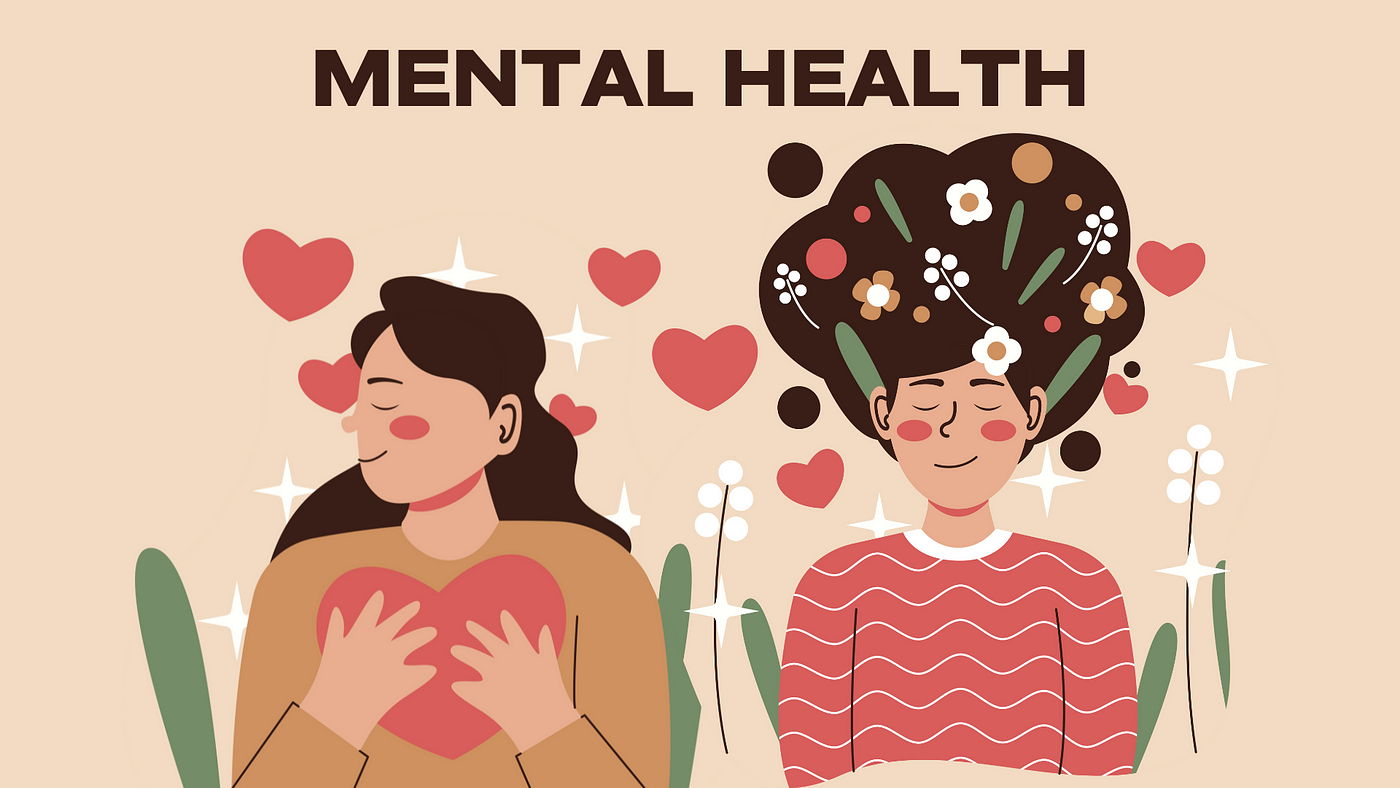Spreading Mental Health Awareness for a Stronger Society
The Crucial Role of Mental Health Awareness
In a rapidly evolving world, mental health has become an essential topic that demands our attention. Spreading mental health awareness for a stronger society is not just an option but a necessity. It involves educating individuals about mental health issues, breaking down the stigma associated with them, and fostering an environment of empathy and support. This article delves into the significance of prioritizing mental health awareness and offers valuable insights on how we can collectively contribute to a stronger society.
The Importance of Mental Health Awareness
Mental health awareness plays a pivotal role in creating a healthier and more resilient society. By understanding the challenges individuals face and promoting open discussions, we can address the misconceptions surrounding mental health. When people are aware of the signs, symptoms, and available resources, they can seek help without hesitation. Spreading mental health awareness also encourages empathy, as it allows us to recognize that mental health conditions are as valid as physical ailments. Moreover, when individuals are well-informed about mental health, they are more likely to extend support and lend a helping hand to those in need.

Spreading Mental Health Awareness for a Stronger Society: Breaking the Barriers
1. Overcoming Stigma: Shattering the Myths
Addressing Misconceptions: Dispelling the Stigma
Misconceptions surrounding mental health often hinder progress in creating a supportive society. By spreading awareness and debunking common myths, we can challenge the stigma associated with mental health conditions. It is crucial to emphasize that mental health problems are not a sign of weakness or personal failure but are common and treatable conditions that anyone can experience.
Language Matters: Using Inclusive and Compassionate Terminology
The language we use when discussing mental health is vital. Employing inclusive and compassionate terminology helps to reduce stigma and fosters a more supportive environment. It is essential to use person-first language, emphasizing the individual rather than their diagnosis. For instance, saying “person with bipolar disorder” instead of “bipolar person” acknowledges their humanity and promotes understanding.
2. Education and Awareness Programs: Knowledge is Power
Promoting Mental Health Education: Starting Early
Integrating mental health education into school curricula from an early age is an effective way to promote awareness and understanding. By providing young individuals with knowledge about mental health, we equip them with essential skills to take care of their own well-being and support their peers. Education empowers individuals to recognize signs of mental distress, seek help, and cultivate a compassionate environment.
Workplace Initiatives: A Healthy Workforce, A Stronger Society
The workplace is a significant setting where mental health awareness can be promoted. Employers can implement initiatives such as mental health training programs, flexible work arrangements, and employee assistance programs to support their staff. Fostering a mentally healthy work environment not only improves employee well-being but also boosts productivity and job satisfaction, contributing to a stronger society.

3. Collaborative Efforts: Uniting for Change
Community Partnerships: Joining Forces for Impact
Spreading mental health awareness requires collaboration among various stakeholders, including community organizations, healthcare providers, and educational institutions. By forming partnerships and working together, we can create a more significant impact in educating and supporting individuals. Joint initiatives such as mental health workshops, awareness campaigns, and support groups amplify our collective efforts to build a stronger society.
Media Influence: Responsible Reporting and Portrayals
Media plays a powerful role in shaping public perceptions. Journalists and media outlets have a responsibility to report on mental health issues accurately and sensitively. Sensationalizing or stigmatizing portrayals can perpetuate stereotypes and hinder progress in spreading awareness. Responsible reporting involves highlighting stories of recovery, sharing accurate information, and providing resources for those in need. By collaborating with the media, we can leverage its reach to disseminate crucial mental health information to a wider audience.
4. Destigmatizing Help-Seeking: Encouraging Support
Normalizing Help-Seeking: It’s Okay to Ask for Help
One of the key aspects of spreading mental health awareness is normalizing help-seeking behavior. Many individuals hesitate to reach out due to fear of judgment or shame. By fostering an environment that encourages seeking support, we can empower people to prioritize their mental well-being. Sharing personal stories of resilience and recovery, showcasing the positive impact of professional help, and emphasizing that asking for assistance is a sign of strength are powerful ways to destigmatize help-seeking.
Accessible Resources: Bridging the Gap
It is essential to ensure that mental health resources are readily available and accessible to all members of society. This includes affordable and comprehensive mental health services, helplines, support groups, and online resources. Governments, non-profit organizations, and healthcare providers need to work collaboratively to bridge the gap in mental health support. By removing financial, cultural, and logistical barriers, we can ensure that everyone has equal access to the help they need.
FAQs about Spreading Mental Health Awareness for a Stronger Society
1. Why is spreading mental health awareness important for society? Spreading mental health awareness is crucial because it helps to break down stigma, promote understanding, and encourage support. It empowers individuals to recognize their own mental well-being and that of others, fostering a healthier and more compassionate society.
2. How can I contribute to spreading mental health awareness? There are many ways to contribute to spreading mental health awareness. You can educate yourself about mental health issues, engage in conversations, share accurate information on social media, support mental health organizations, and be a compassionate listener for those who may be struggling.
3. What role does language play in spreading mental health awareness? Language plays a vital role in destigmatizing mental health. Using inclusive and compassionate terminology helps create a supportive environment and reduces the stigma associated with mental health conditions. It is essential to use person-first language and avoid derogatory or judgmental terms.
4. How can workplaces promote mental health awareness? Workplaces can promote mental health awareness by implementing initiatives such as mental health training programs, flexible work arrangements, employee assistance programs, and promoting a culture of open communication and support. By prioritizing employee well-being, workplaces contribute to a stronger society.
5. How can the media help in spreading mental health awareness? The media can play a significant role in spreading mental health awareness by reporting on mental health issues accurately and sensitively. Responsible reporting, sharing stories of recovery, and providing resources can help break down stigma and provide valuable information to the public.
6. Why is it important to normalize help-seeking behavior? Normalizing help-seeking behavior is crucial because many individuals hesitate to seek support due to stigma or shame. By normalizing help-seeking, we encourage people to prioritize their mental well-being and access the resources and assistance they need to thrive.
Conclusion: Building a Stronger Society through Mental Health Awareness
Spreading mental health awareness is not just a task for healthcare professionals or organizations; it is a collective responsibility. By addressing misconceptions, promoting education and awareness, breaking down barriers, and destigmatizing help-seeking, we can create a stronger society that prioritizes mental well-being.
Through collaborative efforts, including partnerships with community organizations and responsible media portrayals, we can amplify the message of mental health awareness to reach a broader audience. By integrating mental health education into school curricula and fostering mentally healthy work environments, we equip individuals with the knowledge and support they need to navigate their own mental well-being.
It is crucial to normalize help-seeking behavior and ensure that mental health resources are accessible to all members of society. By removing barriers and providing affordable and comprehensive support, we can bridge the gap and empower individuals to seek the help they deserve.
In conclusion, spreading mental health awareness for a stronger society is a vital endeavor. By addressing stigma, promoting understanding, and providing support, we can create an environment that values mental well-being. Together, we can build a society that prioritizes compassion, empathy, and resilience.



